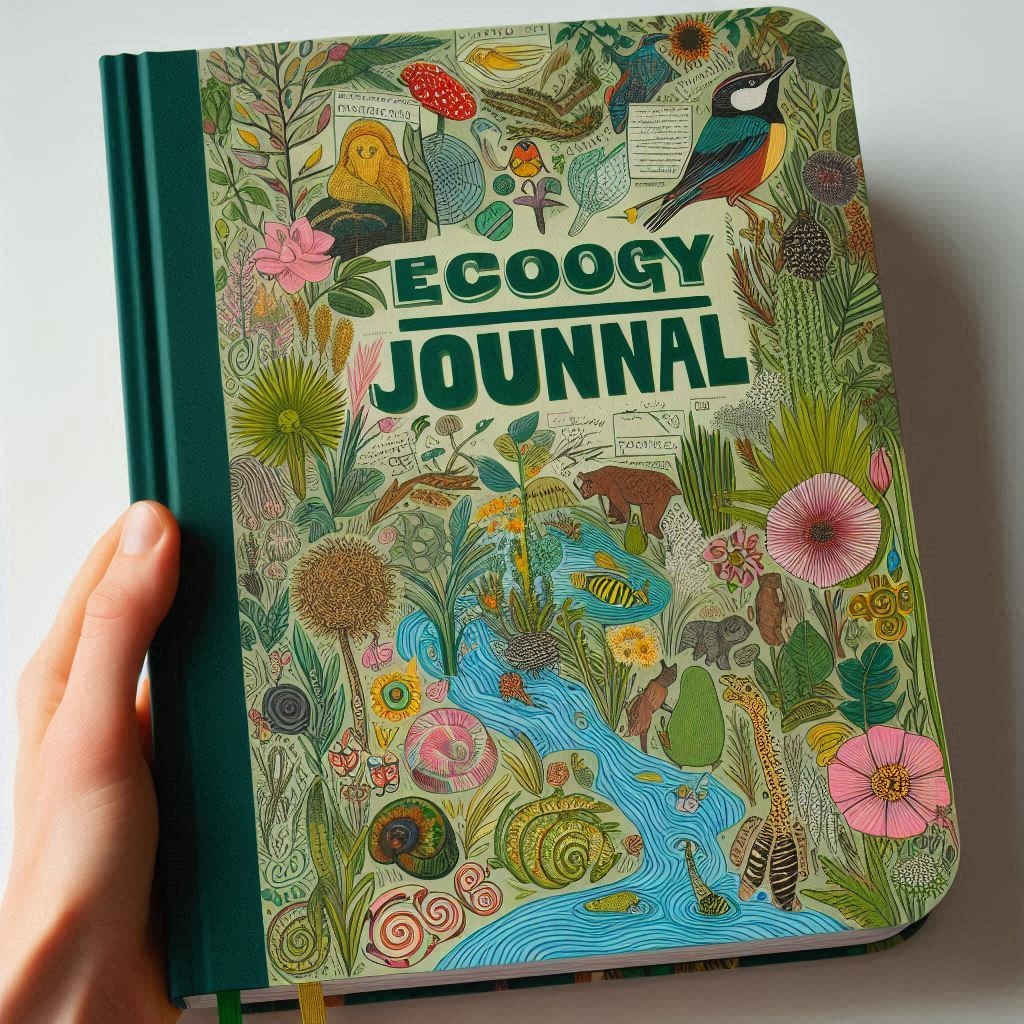Ecology Journals: A Comprehensive Overview
Ecology, the study of interactions between organisms and their environment, is a dynamic field that continues to evolve. Journals dedicated to this discipline are crucial for disseminating research findings, fostering academic discussions, and advancing our understanding of ecological systems. This article explores the significance of ecology journals, highlights prominent publications, and discusses the future trends shaping this vital area of research.
The Importance of Ecology Journals
Ecology journals serve as the primary medium for sharing new knowledge and advancements in the field. They provide a platform for researchers to publish their studies, review existing literature, and propose new theories. These journals are instrumental in bridging the gap between ecological research and practical applications, influencing conservation strategies, environmental policies, and public awareness.
Key functions of ecology journals include:
- Dissemination of Research: They publish original research articles, reviews, and meta-analyses, ensuring that new discoveries reach the scientific community.
- Peer Review: Most journals use a peer-review process to ensure the quality and validity of the published research.
- Advancing Knowledge: By aggregating research on various ecological topics, journals contribute to a deeper understanding of ecological systems and processes.
- Informing Policy: Research published in ecology journals can inform environmental policies and conservation strategies.

Prominent Ecology Journals
Several prestigious journals are well-regarded in the field of ecology. They cover a wide range of topics and have significant impact factors, reflecting their importance in the scientific community. Here are some notable examples:
1. Ecology
Published by the Ecological Society of America, Ecology is a leading journal that covers all areas of ecology. It publishes high-quality research articles, reviews, and commentaries on ecological topics, including population dynamics, community ecology, and ecosystem function.
2. Journal of Ecology
Journal of Ecology, published by the British Ecological Society, focuses on fundamental and applied ecological research. It covers topics such as plant ecology, environmental change, and ecological modeling.
3. Global Change Biology
Global Change Biology publishes research on the effects of global environmental change on biological systems. Topics include climate change, land use, and biodiversity.
4. Conservation Biology
Conservation Biology focuses on the science of biodiversity conservation and the application of ecological research to conservation issues. It covers topics such as species conservation, habitat management, and ecological restoration.
5. Ecological Applications
Ecological Applications publishes articles that apply ecological research to real-world problems. It includes studies on ecosystem management, conservation, and environmental policy.
Emerging Trends in Ecology Journals
The field of ecology is rapidly evolving, and so are the journals that support it. Several emerging trends are shaping the future of ecology journals:
1. Open Access Publishing
Open access journals are becoming increasingly popular, providing free access to research articles and promoting wider dissemination of knowledge. Journals such as International Journal of Environmental Research and Public Health are leading the way in open access publishing.
2. Data Sharing and Reproducibility
There is a growing emphasis on data sharing and reproducibility in ecological research. Many journals now require authors to provide access to raw data and code to ensure that research findings can be verified and built upon. For example, PLOS ONE promotes open data sharing practices.
3. Interdisciplinary Research
Ecology is increasingly intersecting with other disciplines such as climate science, economics, and social sciences. Journals are publishing interdisciplinary research that addresses complex environmental challenges. For instance, Nature Sustainability explores sustainability issues from multiple perspectives.
4. Focus on Applied Research
There is a growing focus on applied research that addresses practical issues and informs policy decisions. Journals like Landscape and Urban Planning publish research that contributes to urban planning and land management practices.
The Role of Ecology Journals in Advancing Research
Ecology journals are not just repositories of research; they are crucial for advancing scientific understanding and innovation. These journals facilitate the exchange of knowledge between researchers, practitioners, and policymakers, leading to improved conservation practices, sustainable development, and enhanced environmental management. The role of these journals extends beyond publishing papers—they actively contribute to the shaping of ecological science by setting research agendas, highlighting emerging issues, and providing a platform for new methodologies.
1. Setting Research Agendas
Ecology journals often highlight emerging research themes and critical knowledge gaps through special issues, editorials, and reviews. These thematic issues bring together diverse research findings on specific topics, such as climate change impacts, biodiversity loss, or ecological resilience. By focusing on these areas, journals can direct attention to pressing ecological issues and encourage researchers to explore these topics further. For instance, Nature Climate Change frequently publishes special issues on climate change impacts, influencing research priorities across the globe.
2. Promoting New Methodologies
Innovation in ecological research often comes from the development of new methodologies and analytical techniques. Journals play a pivotal role in disseminating these advancements. For example, Annual Review of Ecology, Evolution, and Systematics publishes reviews and articles on cutting-edge methods, helping researchers stay updated on the latest tools and techniques in the field.
3. Facilitating Interdisciplinary Collaboration
Many ecological issues are complex and multifaceted, requiring collaboration across disciplines. Ecology journals foster interdisciplinary research by publishing studies that integrate ecological data with insights from fields like economics, sociology, and engineering. For example, Ecosystem Health and Sustainability focuses on how ecological principles can be applied to improve ecosystem health and sustainability, drawing on interdisciplinary perspectives to address global challenges.
4. Enhancing Public and Policy Engagement
By translating complex scientific findings into accessible language, ecology journals help bridge the gap between scientists, policymakers, and the general public. Some journals, such as Environmental Science & Policy, focus on the interface between science and policy, providing insights that can inform decision-making processes and promote evidence-based policies.
Key Areas of Focus in Ecology Journals
Ecology journals cover a wide range of topics within the field. Here are some key areas of focus that are commonly addressed:

1. Biodiversity and Conservation
Research on biodiversity and conservation is central to many ecology journals. Studies in this area explore the diversity of life forms, the factors influencing biodiversity loss, and strategies for conservation and restoration. Journals like Conservation Biology provide valuable insights into how biodiversity can be preserved amidst environmental changes.
2. Climate Change and Ecosystems
Climate change is a major focus in contemporary ecological research. Journals publish studies that examine how climate change affects various ecosystems, species distributions, and ecological processes. For instance, Global Ecology and Biogeography covers research on the impacts of climate change across different biogeographic regions.
3. Ecosystem Services
Ecosystem services refer to the benefits that humans obtain from ecosystems, such as clean water, pollination, and climate regulation. Research in this area assesses how changes in ecosystems affect the provision of these services and explores ways to manage and enhance them. Journals like Sustainability often include articles on ecosystem services and their role in sustainable development.
4. Ecological Modeling and Simulation
Ecological modeling and simulation are essential for predicting ecological outcomes and understanding complex interactions within ecosystems. Journals in this field publish research on new modeling techniques, simulations, and their applications in ecological studies. For example, Ecological Modelling focuses on developments in modeling approaches and their use in ecological research.
Future Directions for Ecology Journals
As the field of ecology continues to evolve, so too do the journals that support it. Several future directions are likely to shape the landscape of ecology journals:
1. Increased Integration with Data Science
The integration of data science techniques, such as machine learning and big data analytics, into ecological research is growing. Ecology journals will likely publish more research that leverages these technologies to analyze large datasets and generate new insights. This integration can enhance our ability to model ecological processes, predict outcomes, and address complex environmental issues.
2. Emphasis on Global Change and Sustainability
Given the pressing challenges of global change and sustainability, ecology journals will continue to focus on these critical issues. Research will increasingly address the impacts of human activities on ecosystems and explore solutions for sustainable development. Journals may feature more articles on topics such as climate adaptation strategies, sustainable resource management, and the role of ecosystems in mitigating environmental impacts.
3. Expansion of Open Science Practices
Open science practices, including open data, open methods, and open access publishing, are expected to become more prevalent. Ecology journals will likely adopt more open science practices to enhance transparency, reproducibility, and accessibility of research. This shift will facilitate greater collaboration and accelerate scientific progress in the field.
4. Focus on Equity and Inclusion
There is a growing recognition of the need for equity and inclusion in scientific research. Ecology journals will increasingly address issues related to diversity, equity, and inclusion within the scientific community. This focus may include promoting research from underrepresented regions, supporting diverse voices in editorial processes, and addressing social dimensions of ecological research.
Conclusion
Ecology journals are vital to the advancement of ecological science and its applications. They provide a platform for disseminating research, fostering academic dialogue, and informing policy and practice. As the field continues to evolve, so too will the journals that support it, with emerging trends such as open science, interdisciplinary research, and a focus
How to Choose the Right Ecology Journal
Selecting the appropriate journal for publishing ecological research involves several considerations:
1. Scope and Audience
Consider the scope of the journal and whether it aligns with your research focus. Journals targeting specific subfields, such as plant ecology or conservation, may be more suitable. For example, Ecological Studies focuses on specific ecological research areas.
2. Impact Factor and Reputation
The impact factor of a journal reflects its influence and the frequency with which its articles are cited. Higher impact factors often indicate greater visibility. Review the impact factor and reputation of potential journals to ensure your research reaches a broad audience.
3. Open Access vs. Subscription
Decide whether you want to publish in an open access or subscription-based journal. Open access journals make articles freely available to the public, increasing accessibility and reach. Consider the publication fees associated with open access journals and the benefits of wider dissemination.
4. Review Process and Publication Time
Evaluate the review process and average publication time of the journal. Some journals offer expedited review processes, which may be important for time-sensitive research. Ensure that the journal’s review process aligns with your publication timeline.
Conclusion
Ecology journals play a crucial role in advancing the field of ecology by publishing high-quality research, fostering academic dialogue, and informing policy and practice. The landscape of these journals is evolving with trends such as open access publishing, interdisciplinary research, and a focus on applied science. By understanding the significance of these journals and choosing the right platform for publishing, researchers can contribute to the ongoing advancement of ecological science and its application to real-world challenges.
For further reading, explore some of the leading ecology journals:
FAQs about Ecology Journals
1. What is an ecology journal?
An ecology journal is a scholarly publication that focuses on research related to ecology, the study of interactions between organisms and their environments. These journals publish articles on various aspects of ecology, including ecosystem dynamics, species interactions, and environmental impacts.
2. How do I choose the right ecology journal for my research?
When selecting a journal, consider factors such as the journal’s scope, impact factor, review process, and audience. Look for journals that align with your research topic and methodological approach. You can also evaluate the journal’s recent articles to ensure it publishes work similar to yours.
3. What are the benefits of publishing in an open access ecology journal?
Open access journals provide free access to published articles, increasing the visibility and reach of your research. This can lead to higher citation rates and broader dissemination of your work. However, consider the associated publication fees and the journal’s reputation before deciding.
4. What should I include in a submission to an ecology journal?
A typical submission includes a cover letter, manuscript, figures, tables, and supplementary materials. Ensure your manuscript adheres to the journal’s formatting guidelines and includes an abstract, introduction, methodology, results, discussion, and references.
5. How long does the review process take?
The review process duration varies by journal, ranging from a few weeks to several months. Some journals offer expedited review options for time-sensitive research. Check the journal’s website or contact the editorial office for information on their typical review timeline.
6. What is the impact factor of a journal, and why is it important?
The impact factor measures the average number of citations to articles published in a journal. It reflects the journal’s influence and reputation within the scientific community. Higher impact factors generally indicate more prestigious journals.
7. Can I submit the same manuscript to multiple journals?
Submitting the same manuscript to multiple journals simultaneously is generally considered unethical. Most journals require exclusive submission, meaning you should not submit your manuscript to another journal until it has been withdrawn from the current one.
8. How can I improve my chances of getting published?
To improve your chances, ensure your manuscript is well-written, thoroughly researched, and follows the journal’s submission guidelines. Highlight the significance and novelty of your work and address potential reviewers’ comments promptly and professionally.
9. What are the typical costs associated with publishing in ecology journals?
Costs may include submission fees, publication fees (especially for open access journals), and charges for color figures or additional pages. Review the journal’s fee structure before submission and consider any funding options available to cover these costs.
10. How can I access articles from ecology journals if I don’t have a subscription?
You can access articles through institutional subscriptions (e.g., university libraries), interlibrary loan services, or by contacting the authors directly. Some journals also offer individual article purchases or free access to certain articles.
11. What is the difference between a review article and a research article?
A review article summarizes and synthesizes existing research on a specific topic, while a research article presents original findings from a study conducted by the authors. Review articles are valuable for understanding the current state of research, whereas research articles contribute new knowledge to the field.
12. What are the ethical considerations when publishing in ecology journals?
Ethical considerations include ensuring the integrity of your research, proper citation of sources, avoiding plagiarism, and obtaining necessary permissions for data and images. Adhering to ethical standards is crucial for maintaining the credibility and reliability of your work.
13. How can I stay updated with new issues and articles from ecology journals?
You can stay updated by subscribing to journal newsletters, setting up alerts for new issues or articles, and following the journals on social media. Many journals also offer RSS feeds or email notifications for new content.
Disclaimers
The information provided in this article is intended for general informational purposes only. While every effort has been made to ensure the accuracy and reliability of the content, the field of ecology and the landscape of academic publishing are continually evolving. Readers are encouraged to consult the specific guidelines and policies of individual ecology journals for the most current information.
Cautions
Publication decisions are made by journal editors and peer reviewers based on a variety of factors, including the quality and relevance of the research. The inclusion of certain journals or practices in this article does not imply endorsement or guarantee of acceptance for publication. Authors should carefully review submission guidelines and seek advice from colleagues or mentors to increase their chances of successful publication.
Open access journals often require publication fees, which can vary significantly. Authors should be aware of these costs and consider available funding options. Additionally, the open access model ensures wider dissemination of research but may come with different considerations compared to subscription-based journals.
Researchers should be mindful of ethical considerations, including plagiarism, data integrity, and the proper attribution of sources. Adhering to ethical standards is essential for maintaining the credibility and trustworthiness of scientific research.
Finally, while this article provides a broad overview of ecology journals, individual experiences and practices may vary. Researchers should seek tailored advice based on their specific needs and circumstances.




